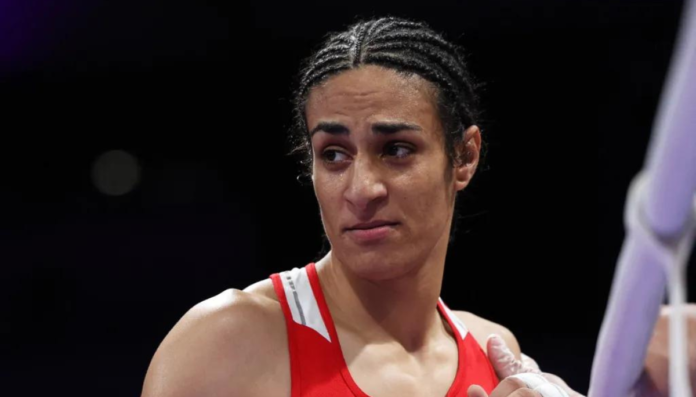Imane Khelif, an Algerian Olympic boxer, has found herself at the center of controversy surrounding gender eligibility, but her resilience has led her to overcome these obstacles.
Algerian Muslim boxer Image Khelif has always competed as a woman, including at the Tokyo Olympics.
Highlights
- Born on May 2, 1999, in a rural Algerian village, Khelif overcame significant cultural barriers and her father’s disapproval to pursue boxing.
- There is ongoing speculation about Khelif’s ability to conceive due to reported XY chromosomes, with suggestions that she may have Swyer Syndrome, a condition affecting fertility.
- The debate over Khelif’s gender identity has extended to social media, with discussions on the implications of her eligibility and the potential impact of her medical condition on her ability to conceive.
There is no evidence suggesting that Imane Khelif identifies as transgender or intersex, the latter being individuals with sex characteristics that don’t conform to the traditional male-female gender binary.
This decision ignited widespread debate and accusations of bias against her. Nevertheless, Khelif’s determination never wavered.
Despite these professional setbacks, she fought to compete and ultimately secured her place in the 2024 Paris Olympics.
Despite Her Father’s Denial, Imane Khelif Overcame Cultural Barriers to Pursue Boxing!
Born as a biological female on May 2, 1999, in Tiaret Province, northwestern Algeria, Khelif grew up in a rural village where sports, particularly for girls, were not widely encouraged.
Initially a football player, Imane later transitioned to boxing. She has also highlighted the challenges she encountered while pursuing sports in a conservative environment.
During her early years, she had to travel to a nearby village for training sessions and sold scrap metal to cover the cost of transportation.
Yes you are right, imane khellif is not a woman but super woman. 👊🇩🇿 #ImaneKhelif pic.twitter.com/Q4op1XVGCh
— Algérie Football Média 🇩🇿 (@DZFOOTBALLDZ) August 1, 2024
Moreover, Khelif has spoken externally about growing up in a rural village and not being allowed to participate in sports initially by her father as “he did not approve of boxing for girls.“
Her father’s denials regarding her involvement in boxing reflect the conservative attitudes toward female athletes in her community.
Imane Khelif’s Swyer Syndrome Might Impact Her Ability to Conceive!
While Khelif’s ability to get pregnant biologically remains a topic of speculation, it is essential to consider that chromosomes play a crucial role in this discussion.
Khelif has been reported to possess XY chromosomes, which are typically associated with males.
However, certain medical conditions can cause individuals who identify as female to have these chromosomes, making the situation more intricate.
No official confirmation has been given regarding whether Khelif has such a condition, leaving much of the discussion open to speculation.
They are saying Imane Kheilf was born a women with Xy chromosome. Wrong. He was born with dsd 47xy meaning he is a man with female parts as well! If he was a female it wld be 46xx with male parts also. #Olympia2024 #ImaneKhelif pic.twitter.com/otBxiHudz2
— 🇺🇸Thought Criminals🇺🇸 (@THGHTCRMNLS) August 1, 2024
The debate over Khelif’s gender identity has also spilled over into social media, where conversations are heated.
Supporters and critics alike have engaged in discussions about her eligibility and personal circumstances. For instance, one social media user pointed out on x,
“Conservatives are in an obvious pickle over the Olympic boxer… because it’s my understanding that Imane Khelif can get pregnant. So, if they keep desperately insisting this woman is a man, then they must be saying men can get pregnant.”
@actingliketommy
Another commented,
“It’s gonna be really funny if she gets pregnant someday and conservatives have to reconcile ‘men cannot get pregnant!’ and ‘Imane Khelif is a man!’”
Additionally, some online discussions have suggested that Imane Khelif might have Swyer Syndrome, a condition that could prevent her from getting pregnant even if she wants to.
Additional Information
- She won her first Olympic bout when her opponent, Angela Carini, withdrew after 46 seconds, sparking discussions.
- Imane Khelif, an Algerian Olympic boxer, has no children as of 2024. She has never been married.
- Khelif faced controversy when she was disqualified from the 2023 World Championships due to failing a gender eligibility test, sparking debates about inclusivity in sports.



